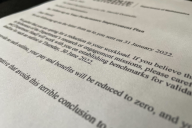You have /5 articles left.
Sign up for a free account or log in.
Among the many concerns of academics about the economic meltdown last year was that it would interrupt the steady flow of retirements that allow departments to bring in new colleagues who may represent disciplinary shifts (and who typically are paid less).
A survey released by TIAA-CREF on Thursday confirms anecdotal evidence that many professors are indeed pushing back their plans for retirement. The data suggest that colleges may need to provide more incentives for retirements, or see far fewer people leave. And with many institutions already curtailing hiring, retirement delays could make a tight job market for new Ph.D.'s even tighter.
In a series of surveys -- over the last three months of 2008 and the first three months of 2009 -- of TIAA-CREF participants who are at least 50 years old, about one third each month reported delaying planned retirement dates. A similar proportion reported that they were changing their plans for how they would live in retirement, presumably planning for more frugality. (While the survey was conducted of samples from all TIAA-CREF participants, not just those in higher education, the vast majority of participants work in academe.)
Paul J. Yakoboski, principal research fellow at the TIAA-CREF Institute, said that the "significant minority" of professors apparently delaying retirement was large enough that colleges may need to adjust expectations. He noted that many of those hit hard by drops in pension funds also have owned homes for some time, and have viewed that home equity as part of their retirement nest eggs -- and may now find themselves unable to sell their homes or to get a desired price.
For colleges hoping to encourage retirements, this means two things, he said. One is that whatever incentive levels have been offered previously to encourage retirements may not result in much movement now. So the incentives may need to be greater. "It's going to take more today than it would have a year ago," he said. He also said that phased retirement incentives may be more important than ever -- since they may fit the needs of faculty members who want to move in the direction of retirement, but who want a few years for their investment funds or home values to recover.
The survey also examined how participants are handling their (somewhat smaller) retirement accounts. About one third in most recent months have reported that they have changed asset allocations since the economic meltdown started last year.
Yakoboski said that some may be moving investments to "something they perceive as safer," but he said that others may view now as a time that equities are available at lower prices than has been the case. Generally, investment experts advise those who are approaching retirement age -- as the samples of the TIAA-CREF surveys are -- to become less risky in how they allocate their accounts. Some people ignore that advice or just don't monitor their accounts, Yakoboski said, so "the market may be prodding people to do something they should have done all along."
The survey suggests that TIAA-CREF participants are not responding by putting all their money in a mattress. Most months since October, the percentage of those saying that they are decreasing contributions to retirement funds is less than 10 percent, while most months at least 15 percent said that they were increasing contributions.








